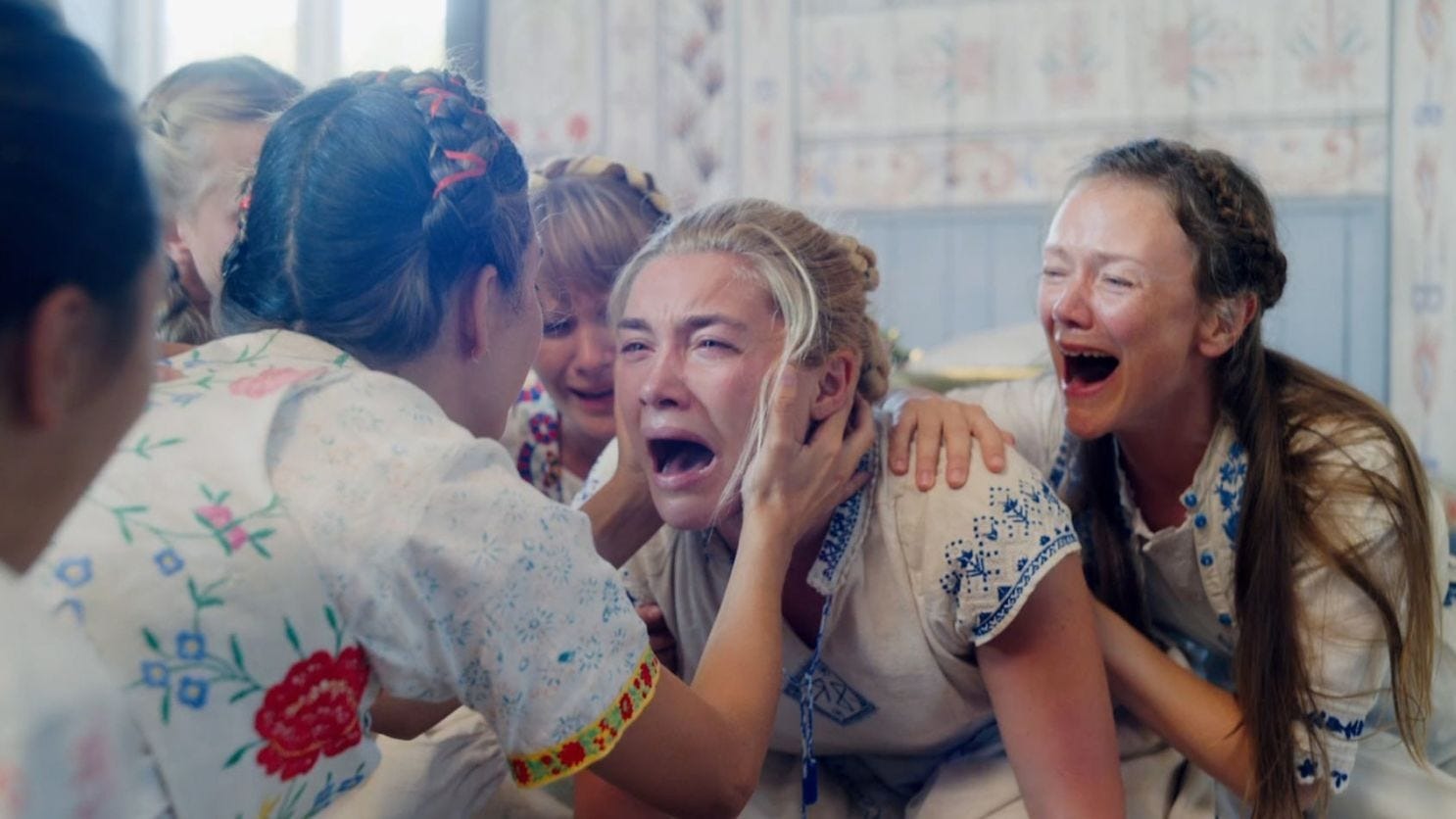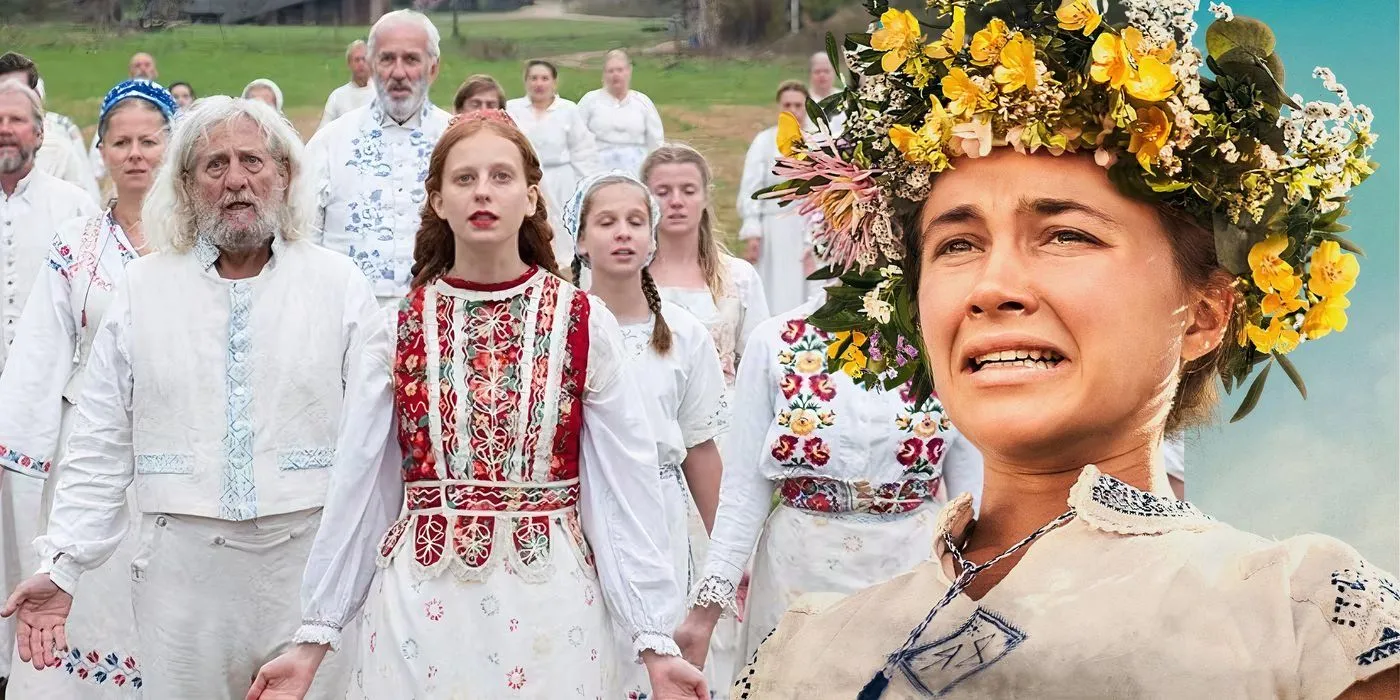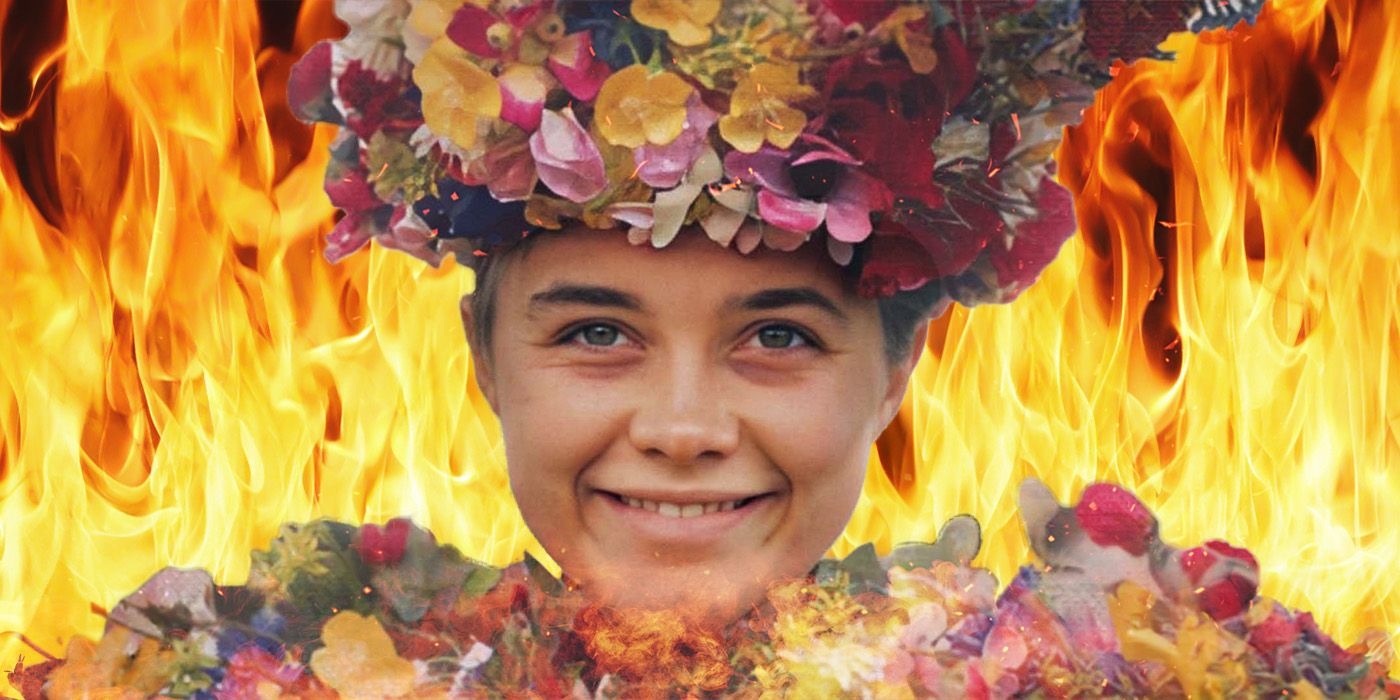Midsommar, directed by Ari Aster, tells a disturbing story filled with emotional tension and surreal rituals, far beyond just horror elements. The focus is on a young woman named Dani, whose grief is almost too heavy to carry, especially as she struggles through a relationship that is falling apart.
She travels with her boyfriend and friends to a remote Swedish commune during a midsummer festival that grows increasingly sinister with each passing moment. Beneath the strange customs and daylight horror, the film also questions the human need for emotional connection, mutual understanding, and finding belonging where one least expects it.

Before looking closely at how Midsommar ends and the meaning behind it, it’s necessary to follow Dani’s emotional progression throughout the film. Florence Pugh delivers a raw performance as Dani, who opens the story already dealing with an unstable sister.
Christian, her boyfriend (played by Jack Reynor), hardly shows concern when Dani reaches out after receiving a troubling email from her sister, who struggles with bipolar disorder.
After that, Dani discovers that her sister has killed their parents before taking her own life, an event that throws her into unimaginable grief. Christian, meanwhile, gives her cold, distracted comfort — his hand on her shoulder but his heart elsewhere.
Ari Aster has described Midsommar as a break-up story at its core. From the beginning, Christian behaves like someone looking for an exit.
His emotional withdrawal becomes more noticeable as the film progresses — refusing to properly communicate, acting indifferent to Dani’s trauma, and failing to prepare her for disturbing experiences like the ättestupa ritual.
He also dismisses her growing fears, such as when she worries about Simon disappearing without Connie. All these moments expose how little emotional support he offers her.
What Happens to Dani and Christian in ‘Midsommar’?
The tension within Midsommar reaches its peak when it becomes clear that the commune is not just eccentric, but dangerous and structured with deadly intentions. By the time the rituals intensify, all the outsiders apart from Dani and Christian have vanished without explanation.
A dance around the maypole takes place, and Dani becomes May Queen after outlasting the other participants. As part of her new role, she is carried around the village and asked to bless their crops. While this is happening, Christian is lured into a separate ritual.
He is drugged and asked to have sex with Maja (Isabelle Grill) to help bring fresh blood into the group. Still under the influence, Christian goes along with it, which deeply damages whatever little trust remains between him and Dani.
On her return, Dani hears sounds from the ritual, then walks in and sees him. She breaks down immediately — not quietly, but with deep, uncontrollable sobbing. But this time, the women of the commune do not leave her alone. They follow her into the room and match her cries with their own as if feeling her pain alongside her.
This act of emotional sharing had already appeared earlier, during the ättestupa, when the villagers screamed in pain as an elder lay suffering after falling. That moment, like this one, reveals a major difference between Dani’s former life and her current surroundings.
The people in the commune place huge value on emotional unity. Unlike Christian, who often ignored Dani or offered her shallow comfort, the villagers fully engage with her emotions, even when they are painful or overwhelming.
Dani Chooses to Sacrifice Christian, Who Is Burned Alive in a Bear Carcass
Towards the end, the truth behind the midsummer ceremony is exposed fully. All the missing visitors — Josh, Mark, Simon, and Connie — have already been killed and will serve as part of the ritual’s final sacrifice. Two volunteers from the village step forward and one more person must be chosen.
At this point, Dani is given the power to decide between a random villager chosen by Lottery or Christian, who betrayed her on several levels — not just through his physical actions but through years of emotional neglect.
Still heartbroken and full of anger, she picks Christian to be the last sacrifice, a decision that also symbolizes her decision to fully join this new community. Christian, still alive but drugged and unable to move, is sewn into a bear’s body and placed inside a wooden temple along with the other sacrifices.
Once the structure is set on fire, the villagers gather outside to watch. One of the village volunteers starts screaming as the flames consume him, and again, everyone outside begins to scream with him. Dani watches this, initially shocked and frozen in place, but slowly her expression changes.
A small smile starts to form on her face as she watches, showing a change in her feelings and her place within this new group.
Why Does Dani Smile at the End of ‘Midsommar’?
When Midsommar begins, Dani’s life is defined by loneliness and emotional abandonment. By the time the story closes, her isolation has been replaced by a strange but undeniable sense of shared feeling — both sorrow and joy.
After losing her family, she searched for connections with Christian and his friends, but all she found was coldness and emotional disinterest. The commune, with all its terrifying flaws, gives her something she hadn’t found before — acknowledgment, closeness, and emotional responsiveness.
Although the ending may come across as both disturbing and deeply emotional, the truth remains that the community carried out acts of murder.

While Christian’s actions throughout the film lacked care and integrity, questions remain about how Pelle (Vilhelm Blomgren) could justify luring his so-called friends to be killed. Josh, for instance, had a genuine interest in the culture and practices of the commune, which makes his inclusion in the sacrifice unsettling.
Then again, maybe that’s the reason — those within the commune want their secrets to stay buried, especially regarding their more disturbing customs. The stronger message behind Midsommar lies in emotional connection and how crucial it is in our closest relationships.
Dani had experienced terrible trauma, the kind that demands patience and deep understanding. Yet Christian barely tried to support her, treating her suffering as a burden. Relationships without mutual empathy struggle to survive. People want to feel accompanied, both when hurting and when happy.
And while the conclusion involves horrifying imagery — a burning temple, bodies inside, and Christian in a bear’s skin — Dani is no longer alone. She has found a group that allows her emotions to be seen and shared, even if that group operates in morally disturbing ways. It’s a dark and twisted comfort, but to Dani, it finally feels like family.
Where can you watch it online? You can purchase “Midsommar” through Amazon Video, Apple TV, Fandango At Home, or the Microsoft Store.



